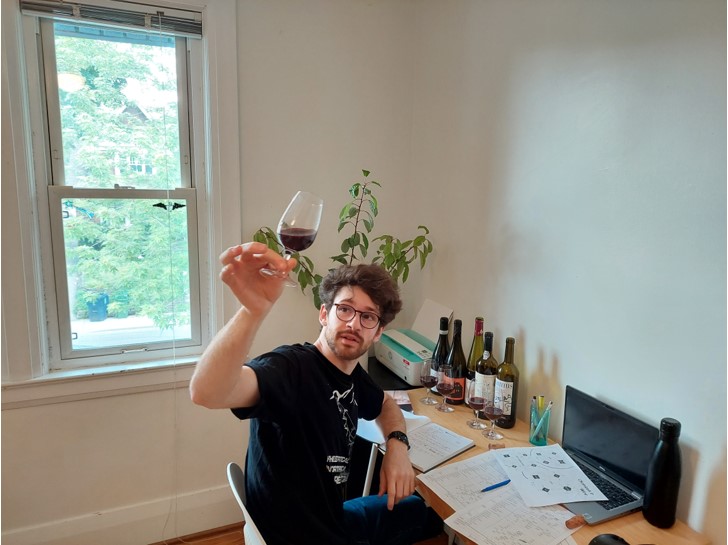
Aspiring sommelier, Robert Geringer Jones, hard at work, studying his craft.
I never liked wine. Wine meant boring dinners and stuffy atmospheres, library-esque rows of near identical bottles wearing verbose labels and high price tags.
Staring at the registration page for my sommelier certification with a glass of Nebbiolo on my desk, I couldn’t help but wonder, is this what I want to do for the rest of my life?
Who knows the hurdles (and rewards) that lie ahead of me as a young sommelier, and how did I even arrive at this point? It all comes down to context… and perspective.
My first experiences with wine were little sips at dinner tables, a glass snuck into my hands by my dad or uncle with a whisper of “don’t tell your mom”, no doubt for the amusement of watching my face shrivel up into a puckered grimace, as my young tongue, more suited to Reese’s Puffs and apple juice, was battered by tannin and acidity.
Wine was always around at most family gatherings; it sat at every dinner table, especially during religious holidays (during the Jewish Passover Seder, if you do everything by the book you end up drinking four glasses of wine before the food even comes out), but despite this, my family, for the most part, wasn’t interested in wine. Wine was just a thing that everyone could agree on drinking, and many a night I vaguely remember some $10 bottle of New World Cabernet Sauvignon, or maybe the rare Ripasso (a favourite of my mom’s).
With only a passing sip here or there, I was completely unaware there was any difference from one bottle to another until I sat down many years later one fateful evening in front of a sommelier and tried multiple wines side by side, at the now closed Brothers Food and Wine on Toronto’s Bay Street. The somm paired each dish we ordered with a wine that night, and I was utterly blown away.
All those wines I had thought to just be the same hazy, vague “wine-ish” flavor became distinct, complex, personalities of their own, dancing and flirting with food textures, aromas, and flavours. While that was the experience that got me into wine, the impact of that night didn’t fully register until a few years later. I realized I didn’t just want to drink wine, I wanted to make people feel what that sommelier made me feel on that particular night; I wanted to change people’s perspectives.
I drink usually wine alone as ,quite frankly, no one I know cares about wine at all.
When I drink with my friends, we love to drink and discuss everything from craft beer, through whiskey, to spirits of all kinds, but for some reason never wine. We have tastings, we cellar bottles, we visit breweries and distilleries, and even brew our own. But never touch upon wine. To them, wine is still the same world of soccer moms and buttoned collars that it was once to me. So far, this has been my greatest challenge, to help people stop seeing their preconception of wine and just drink the damn stuff. I can dump as much word salad on a customer as I can toss about the region and soil type, but it means nothing to anyone who isn’t already a wine enthusiast.
I’m starting to realize just how much you really need to understand wine to put the right words in the right order and get someone’s attention and excite them about what’s under the cork. I told you previously that I drink alone, and that’s not a bad thing, as when drinking alone one can truly focus on the wine and the wine alone, without any kind of bias or influence. Saying that, I think the most memorable experiences that wine can grant are when wine acts as a catalyst to good company and conversation, and more than anything else I want to share that experience with my friends and family. But there’s more going on in wine outside of the dining room.
Wine is such an incredibly historic industry. I want to see it grow and evolve, though it’s hard imagining it changing much in my entire lifetime. The movement of wine is monolithic and lumbering; its changes are gradual and incremental. I always envisioned the weight of my career to make an impression on the world, a childlike naiveté maybe, and I wonder if I’ll ever have the chance. But perhaps one doesn’t have to change the world, and just being a part of it is enough.
I’ll likely spend my entire career wondering about that, but what a career it will be.
Travelling to places so ancient and picturesque I’m still not convinced they’re actually real (the first time I saw images of Piedmont I swore it looked like something out of Tolkien’s Middle Earth), or sharing in the passion of other wine lovers and winemakers is a privilege no other industry can really grant. There’s a lot more than can be said about the difficulties of a young sommelier, of course. The competition, the uncertainty of the industry amidst a pandemic, the seemingly endless amount of information, and the complex and varied paths of education, but that’s what I signed up for, it’s the name of the game.
The real questions to me have always been what I’m setting out to achieve with wine as my career. I’m sure that as I continue in my journey to new contexts, that perspective will shift many more times, just like it’s shifted from when I was a boy. It never occurred to me, all those years ago when I hated the idea of wine, inside those ambiguously coloured bottles, that there was magic, corked potions of joy and mirth, elegance and ferocity.
Wine means the laugher of loved ones over clinking plates and silverware, progress and history, and for me, a future and a purpose.

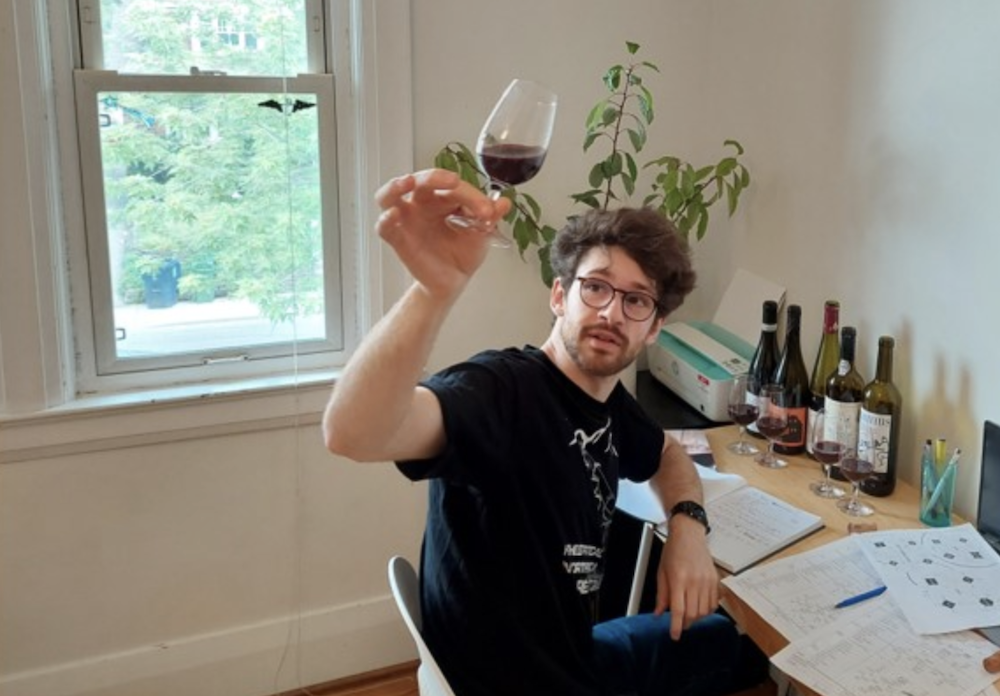

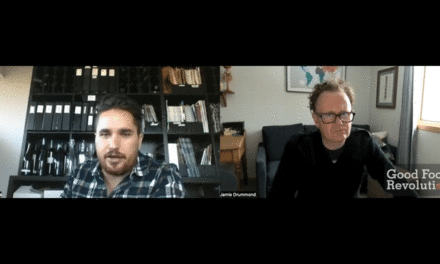
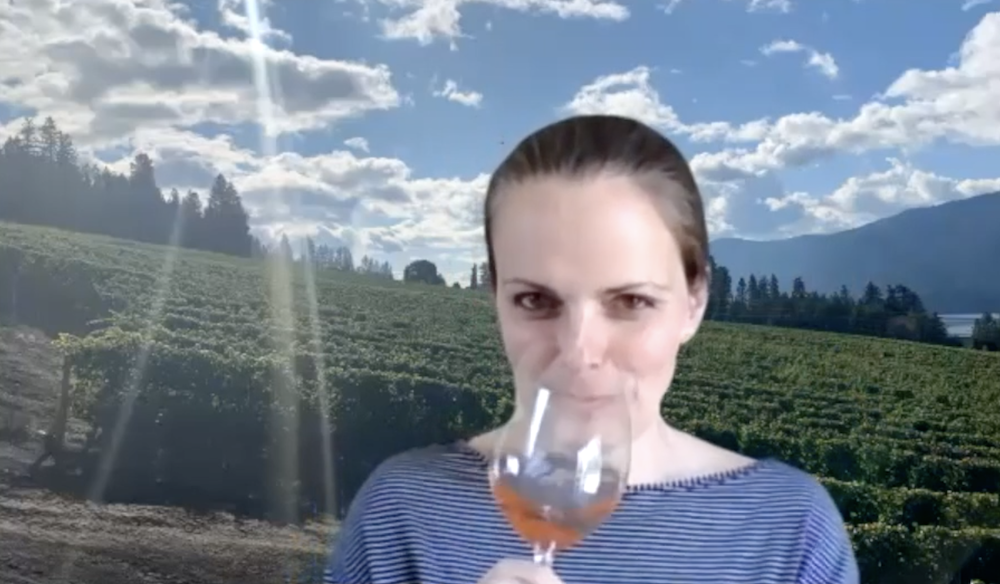

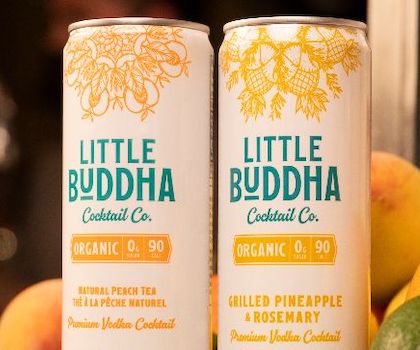

I have also become passionate about wine and love to drink it alone, just the glass of wine and I. I also love the shared experience with fellow wine lovers. You have encapsulated this all so well in this beautifully written article and I wish you all the best in your career. I hope to learn more from you!
Thank you Robyn, I really appreciate your kind words. I’ve got a few bottles waiting with your name on them, so hopefully I will see you soon!